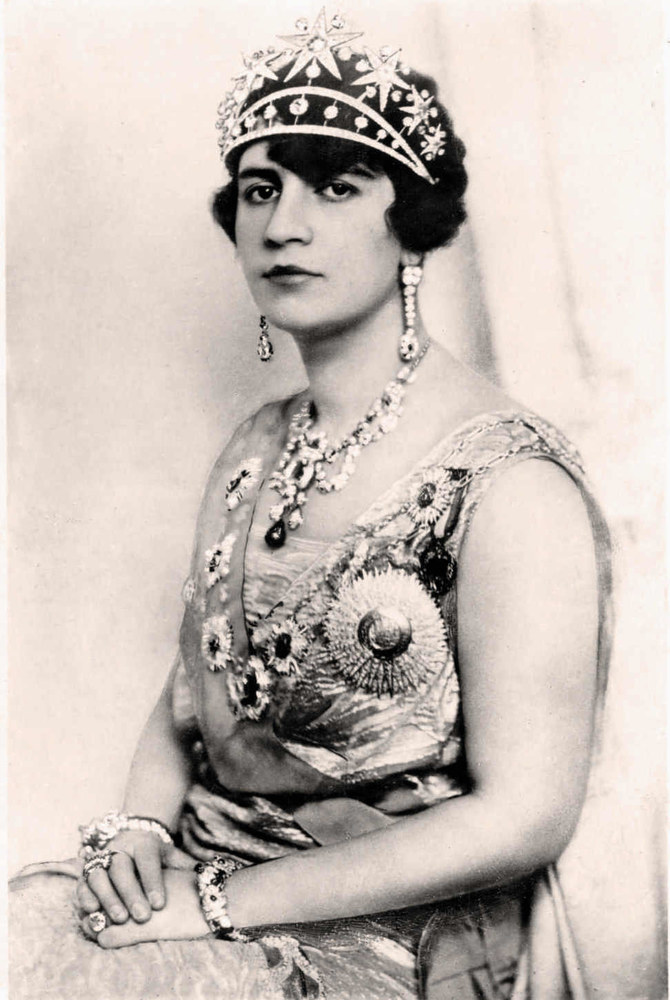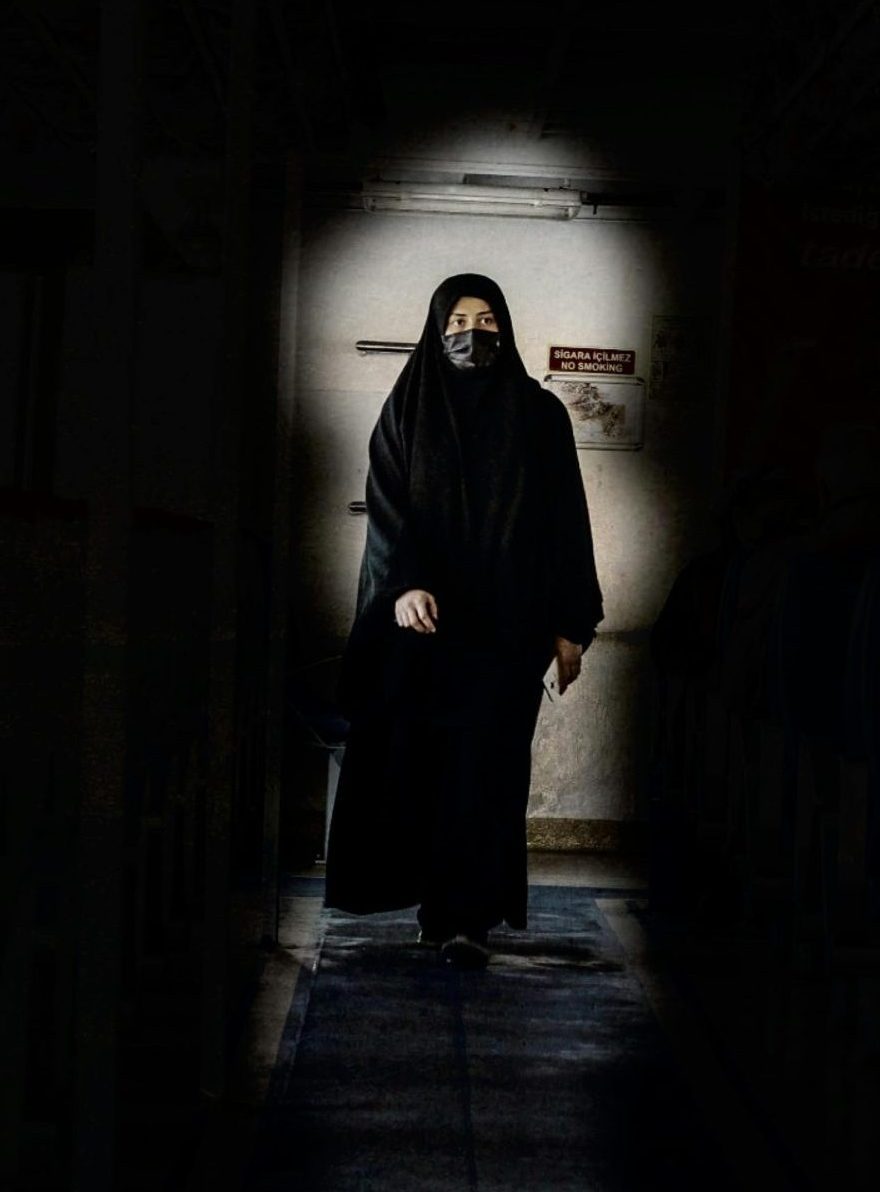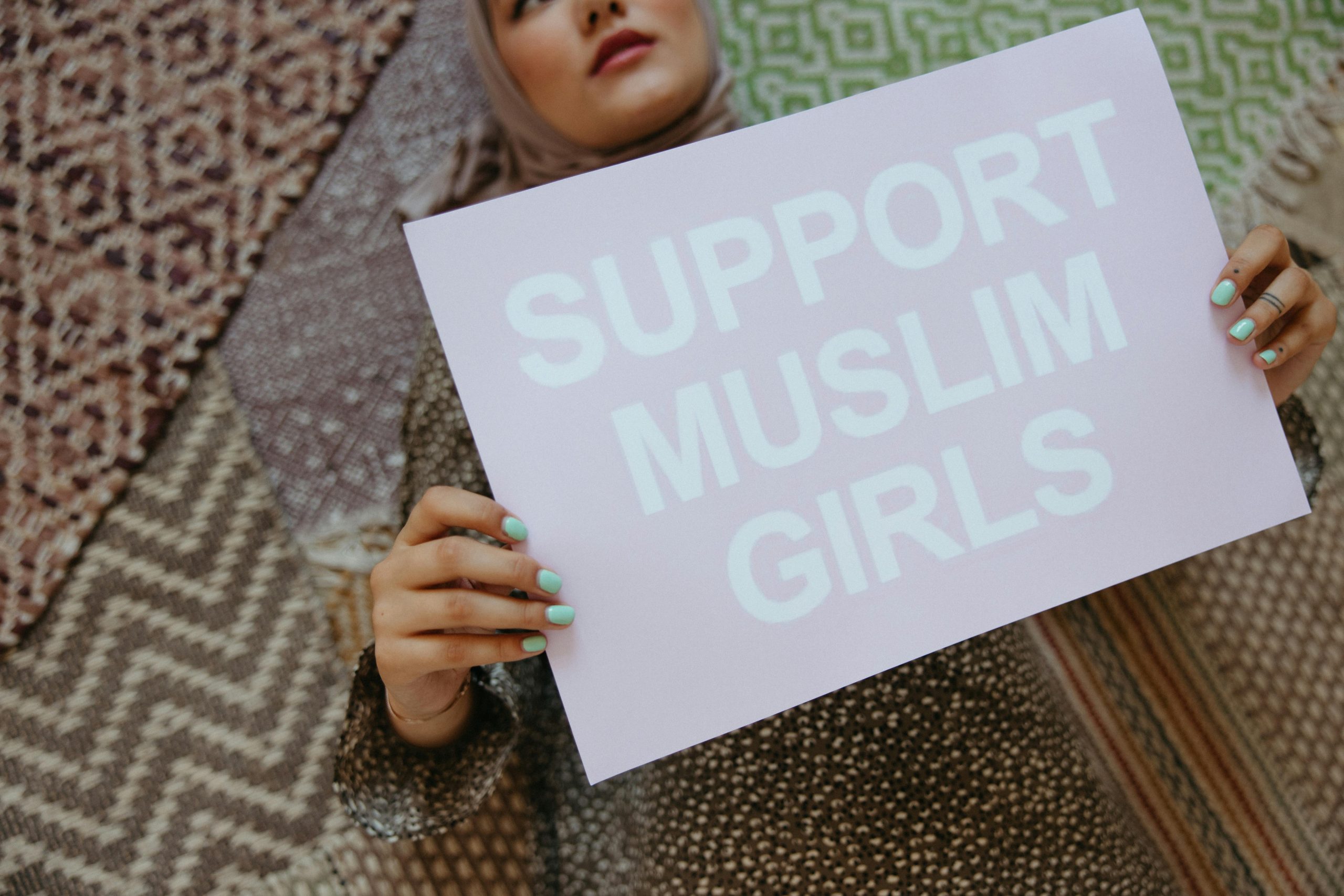Writing History in the Shadows: The Forbidden Education Movement of Afghan Women
“I believe we are all born feminist. No one can claim that women deserve fewer rights than men. You are either a feminist or you are a misogynist.” These words, whispered by Maral, a 15-year-old former middle high school student in Kabul, capture the quiet defiance that defines today's underground resistance movement among Afghan women.
In her small home apartment, she gathers with fifty other young women three times weekly, secretly online, to join Voices Unveiled’s Self Empowerment Course and continue the education that has been officially denied to them. Together, they strengthen this chain of resistance that spans generations—continuing not just education, but a legacy of refusing erasure that has been passed down for centuries. Despite Taliban bans, these digital classrooms have become sanctuaries where women reclaim their right to exist fully in a society determined to make them invisible.
How Afghan Women Continue to Fight Against Repeated Erasure

The Repeated Pattern of Erasure
For generations, Afghan women have walked through walls of oppression. They've fought against education bans that kept classrooms empty of girls, employment restrictions that erased their economic independence, and healthcare barriers that endangered their very lives. They've stood against forced marriages that stole their futures and domestic violence that scarred their bodies and spirits.
For centuries, just as they are today in 2025, Afghan women have been systematically denied their fundamental right to education. In this deeply entrenched patriarchal system, their exclusion extends beyond classroom walls—it has silenced their voices in family decisions, community leadership, and basic self-expression, and even in determining the direction of their own lives.
Yet throughout this history, Afghan women have never accepted erasure as their fate.
The Revolutionary Pioneers in Education
In the face of such deep rooted oppression, Queen Soraya Tarzi emerged as a transformative figure who refused to accept the status quo. In 1920, she founded Masturat School, Afghanistan's first school for girls in the 20th century, understanding that education wasn't merely about acquiring knowledge—it was the foundation for independence, empowerment, and equality. Queen Soraya understood that lasting change is not only about resistance but about building a future where women’s rights are recognized. She was more than a queen, she was a revolutionary.
Alongside her mother, Asma Rasmiya Khanom, Queen Soraya also championed broader reforms for women’s rights. In 1921, they launched Irshad-i-Niswan (Guidance for Women), the country’s first magazine focused on women’s issues, providing a rare platform to promote education, health, and social participation. Her vision extended to women's healthcare with the opening of the Masturat Hospital in 1924, the first medical facility in Afghanistan dedicated to women. These pioneering efforts affirmed that women’s health, bodies, and lives truly mattered, and formed part of a bold vision to uplift women and reshape Afghan society. Queen Soraya’s legacy proved that when women are empowered and have access to education, they can break centuries-old barriers, transform societies—a legacy that continues to inspire.

As royal consort, Soraya Tarzi pushed for equal rights and education, opening Afghanistan’s first school for girls. She was forced to flee Afghanistan along with the king in 1929. (Getty Images)
Dr. Anahita Ratebzad continued this tradition of resistance in the mid-20th century, embodying another crucial link in the unbreakable chain of Afghan women's struggle. Not merely a physician, she transformed healthcare access for women while simultaneously challenging the political establishment that sought to confine them to domestic spheres. Rising from humble beginnings in Guldara, she obtained her medical degree at a time when female doctors were nearly nonexistent in Afghanistan, making her very existence a form of rebellion. As a political leader and parliamentary candidate in the 1960s, Ratebzad fearlessly advocated for women's suffrage and labor rights, often facing threats and public condemnation. Her watershed moment came in 1965 when she organized Afghanistan's first-ever International Women's Day march through the streets of Kabul. Under her guidance, hundreds of women publicly demanded access to education, healthcare, and political representation—an unprecedented act of collective defiance that reverberated throughout the country.
"Until women are free, no one is truly free," she famously declared at the rally, words that would be secretly passed among generations of Afghan women activists. Her revolutionary work establishing women's literacy programs in rural provinces extended the resistance beyond urban centers, creating networks of educated women who would later become leaders in their own communities.
Her work earned her the title "Mother of Liberation"—a recognition of how she amplified women's voices when society attempted to silence them. Next month, the next participants in Voices Unveiled's Self-Empowerment classes will study Ratebzad's speeches and organizing tactics, drawing strength from her legacy as they continue her fight under far more dangerous circumstances. Like the secret schoolgirls of today, Ratebzad understood that education was not merely about literacy—it was about claiming one's rightful place in society and refusing to accept erasure as inevitable.
The Rise and Fall of Women's Rights

Cycles of Progress and Reversal
But history has shown that the rights women fight for can be erased in an instant.
The history of Afghan women's rights reveals a painful pattern of progress followed by devastating reversals. Following the US-led coalition's overthrow of the first Taliban regime in late 2001, a remarkable—though fragile—renaissance began for Afghan women.
This period of advancement was built on tangible structural changes: the 2004 Afghan Constitution explicitly guaranteed equal rights for men and women in Article 22, billions in international aid targeted women's development, and electoral laws established quotas guaranteeing women at least 27% of parliamentary seats. Within this new framework, women's rights organizations flourished, creating networks of support and advocacy that had been impossible under Taliban Rule.
The results were transformative: female school enrollment rose from near zero to over 3.5 million girls by 2018 (The Diplomat), with women making up nearly 30% of university students by 2020 (UN News). By 2021, women held 27% of parliamentary seats and served as governors, ministers, ambassadors, and made up 21% of the civil service (UN Women, European Parliament Briefing).
Yet this progress remained vulnerable. It was largely concentrated in urban areas, especially Kabul, while rural women saw minimal changes. Deep-seated cultural resistance continued, and ongoing conflict meant schools for girls were frequently targeted. Most critically, these advances depended heavily on international presence rather than self-sustaining local structures.
Freesia, now age 26, remembers this period with both joy and pain. "I became a medical student in university, the first in my family to complete higher education," she recounts. "For four years, I assisted in the emergency room and the maternal ward, helping with procedures and births. Now, I sit at home, my medical knowledge wasting away, while people—especially women—die from treatable conditions."
The fragility of these gains became devastatingly clear in 2021. The 2020 US-Taliban agreement in Doha prioritized American withdrawal without securing protections for women's rights. Following the announcement of full US withdrawal, Taliban forces rapidly captured provincial capitals in summer 2021, culminating in the fall of Kabul on August 15.
The Taliban's return to power initiated what the United Nations has called "gender apartheid"—a systematic erasure of women from public life, methodically dismantling two decades of progress almost overnight.
The Invisible Prison: Life for Afghan Women in 2025
Aisha stands at her window, the dusty light of Kabul filtering through the partially drawn curtains. At 19, she should be in her second year of university. Instead, she hasn't left home in weeks. Not because she's ill—though the heaviness in her chest feels like sickness—but because there's nowhere for her to go, no purpose to step outside the walls that have become both sanctuary and cell.
"Before, I had dreams," she whispers. "I wanted to become a literary scholar. Now I just dream of walking to the market without fear."
In 2025, nearly 23 million Afghans—almost half the population—require humanitarian assistance simply to survive (UN Report 2025). For women like Aisha, this reality is compounded by the systematic erasure of their most basic rights. Afghanistan stands alone as the only country in the world that explicitly bans girls from secondary and university education, cutting off generations from knowledge and opportunity.
The impacts cascade through every aspect of women's lives. In the neighborhood where Aisha lives, 16-year-old Mariam was married last month to a man three times her age. Her family, once middle class, could no longer afford to feed all their children.

"They cried when they sent her away," Aisha says. "But what choice did they have? My father says forced marriages are increasing everywhere as families become desperate."
The healthcare system that might have supported Mariam through pregnancy has collapsed for women across Afghanistan. In clinics nationwide, the scarcity of female medical professionals has created a deadly gap in care. With male doctors prohibited from examining women without a male guardian present—an impossibility for many whose husbands or male relatives work away from home or have died—women frequently endure dangerous delays in treatment. What might be routine healthcare in other countries becomes a life-threatening ordeal, as women with treatable conditions deteriorate while waiting for the impossible alignment of circumstances that would allow them to receive care. These barriers have turned manageable health issues into medical emergencies, with devastating consequences for maternal and infant mortality rates that had only recently begun to improve after decades of progress.
Even basic movement has become nearly impossible. The newest "virtue and vice" laws prohibit women from traveling or using public transport without a male guardian. They must cover their faces in public, cannot sing or raise their voices where they might be heard by strangers. The psychological toll is immeasurable.
"Sometimes I feel like I'm disappearing," Aisha admits, her voice barely audible. "Not just me, but all of us. As if we're being erased person by person, dream by dream."
Malnutrition affects women and children most severely, with mothers often skipping meals to feed their families. In the makeshift schools that operate in secret, teachers report children too hungry to concentrate. Yet even in these grim circumstances, resistance continues.
"We teach anyway," says Fatima, who runs a clandestine class in her basement. "We study anyway. They can take our schools, but they cannot take our minds unless we surrender them."
As the sun begins to set, Aisha moves away from the window. Tomorrow will be the same as today. And yet, like thousands of Afghan women, she keeps a journal hidden beneath her mattress—filling it with poems, philosophical theories she memorized from borrowed textbooks, and plans for a future she refuses to stop believing in.
"This is not just about us," she says. "This is about whether a chain that has bound women for centuries can finally be broken. Even when it seems impossible, we must keep pulling at the links."
The Unbreakable Chain: Stories from Afghanistan's Shadow Resistance

In the predawn darkness, fourteen-year-old Ami carefully tucks her notebooks into a shopping bag beneath vegetables from the market. Her journey through Kabul's awakening streets must appear ordinary—just another girl running errands for her family. What remains hidden is her true destination: one of thousands of secret schools operating across Afghanistan.
"We come two at a time, never in groups," Ami explains in a soft spoken conversation. "Different routes, different times. Our teacher says it's like we're playing a game of chess with people who don't know we're playing."
This invisible classroom is part of an extraordinary underground resistance movement that has emerged since the Taliban's return to power. While headlines focus on sweeping restrictions, a remarkable counter-narrative is unfolding behind closed doors and through encrypted connections—one of defiance, determination, and the refusal of Afghan women and girls to disappear.
The Living Classrooms
Inside an ordinary-looking home in a residential neighborhood, what appears to be a family gathering is actually a classroom of fifteen students ranging from 13 to 17 years old. Their teacher, Farida, was once a university professor. Now she risks imprisonment to ensure these girls don't lose years of educational progress.
"We move locations every few weeks," Farida explains. "The girls bring their own paper. We have a signal system if anyone suspicious approaches."
The risks these educators take cannot be overstated. In rural Daykundi province, Ruksana runs a secret school under even more dangerous conditions than her urban counterparts.

"Each day I teach, I know I might be discovered. The punishment would be severe—imprisonment, beatings, humiliation, or worse. But what choice do we have? To surrender our minds is to surrender our humanity. I have chosen to face these risks and challenges in a community where education remains a colossal crime.
My purpose and motivation drive me to prioritize education above all else, regardless of the mental or physical dangers. I aim to bring youth together and inspire them not just to dream, but to live their dreams. I want to give them hope and the strength to believe in the possibility of a better future. I seek to ignite the light of education in a community where people fear the light and fight to destroy it. Yet, I will persist with all my power to ensure that this light never goes out."
According to Washington Post investigations, an estimated 5,000 girls receive education through these shadow networks. The teaching materials often travel digitally—lessons downloaded during rare moments of electricity and internet access, then printed in small batches or simply copied by hand.
What's most remarkable is how ordinary these extraordinary measures have become. When asked if she's afraid, 15-year-old student Zainab shrugs. "Of course. But more afraid of forgetting what I've learned. More afraid of becoming nothing."
The Digital Classroom
Not all resistance happens in person. When 20-year-old Leila's highschool education was abruptly terminated three years ago, she found another path through an encrypted messaging platform.
"I study economics, health and geometry now through an online program," she explains. "The connection is terrible—sometimes I wait hours to download a single lecture—but I'm still learning."
Digital networks like Voices Unveiled have emerged to share educational courses and materials, offering everything from basic literacy to advanced university courses. Some provide accredited certification through partnerships with international high schools and universities. Others focus on practical knowledge—business skills, coding, languages—tools for future economic independence.
Voices Unveiled stands out distinctively as one of the very few digital platforms that extends beyond purely academic subjects to address crucial soft skills and mental health. While many initiatives focus solely on traditional content, Voices Unveiled recognizes that surviving under oppressive conditions requires emotional resilience and psychological well-being alongside intellectual development.

Their curriculum includes modules on stress management, trauma recovery, and community building—tools that transform education from mere knowledge acquisition into a comprehensive path for personal empowerment despite isolation.
"What's powerful is that these digital classrooms cross boundaries," says Sana, who helps coordinate one such network. "A girl in rural Kandahar can learn from the same materials as someone in Kabul, if she has any way to access the internet—which is also a huge challenge, and both can interact with Afghan teachers now living abroad."
Voices Across Borders
The resistance extends beyond Afghanistan's borders through a growing diaspora of Afghan women who use their relative freedom to amplify voices still trapped inside. These international advocates have created a crucial bridge, preventing the world from forgetting what happens behind Afghanistan's increasingly isolated borders.
The Quiet Rebellion

What connects these various forms of resistance—from secret classrooms to whispered medical consultations to digital lifelines—is their unified purpose: to prevent the erasure of Afghan women from public life and history.
"They want us to disappear," says Farida, the secret school teacher. "First from schools, then workplaces, then from the streets entirely. But we refuse to vanish."
This refusal manifests in both large and small acts of defiance. Sometimes it's as simple as a young woman memorizing poetry the authorities would ban. Sometimes it's as complex as coordinating international scholarship opportunities for girls to continue education abroad.
Together, these acts form an unbreakable chain of resistance that spans generations—connecting today's young girls with the legacy of their mothers and grandmothers who fought similar battles in previous decades.
As dusk approaches in Kabul, Ami carefully rewraps her books beneath market vegetables for the journey home. Tomorrow she'll take a different route to her secret classroom—another small link in this remarkable chain of defiance that refuses to be broken.
Six Ways to Stand with Afghan Women
In a world of fleeting news cycles, the systematic erasure of Afghan women's rights demands our sustained attention. While symbolic gestures matter, concrete actions create real change. Here's how you can make a difference:
Support Educational Initiatives: The Taliban's education bans have put a generation at risk. Voices Unveiled stands out with innovative digital classrooms featuring exceptional cybersecurity measures, soft skills training, and mental health support. These secure platforms allow Afghan girls to continue learning despite enormous obstacles. How you can help: Fund student scholarships or become a monthly member through these remote learning platforms and underground schools through donations that provide operational equipment, internet access, and teacher stipends.
Volunteer to Teach Online: Become part of the unbreakable chain of resistance by sharing your knowledge through Voices Unveiled's teaching program. With as little as just one hour per month, you create a vital connection that transcends borders. Getting started is simple: Complete an application on Voices Unveiled's website indicating your expertise (English conversation, business skills, creative arts, etc.) and availability. No specialized teaching credentials required—just knowledge to share and consistent commitment.
Fund Emergency Healthcare: Afghan women face increasingly dire health outcomes due to restricted mobility and declining female healthcare providers. Former medical professionals now operate underground networks, providing critical care at great personal risk. Make an immediate impact: Voices Unveiled's Emergency Funds deliver 100% of donations directly to families in need—with zero administrative fees. Your contribution directly provides medical care, food, and essential support for women facing acute crises.
Fundraise Through Your Community: Individual fundraising efforts collectively power organizations doing vital work. Try these approaches:
Launch a social media fundraiser through Facebook or Instagram to leverage your personal network
Organize a community gathering like a concert, dinner night, or book club discussion
Create a "skill-for-donation" exchange offering your talents (photography, art, fitness instruction, professional services) in exchange for donations Even $500 can fund a teacher's salary or provide internet access for multiple students.
Support Refugee Resettlement: For women facing immediate danger, safe pathways out of Afghanistan are literally lifesaving. Support programs that increase refugee quotas, streamline application processes, and provide comprehensive resettlement assistance.
Pressure International Bodies: Advocate for accountability by urging governments and NGOs to pressure international bodies to hold Afghanistan's current rulers accountable for human rights violations. Insist on women's representation in all diplomatic engagements.
The silencing of Afghan women represents one of today's most comprehensive human rights crises. Yet even as official spaces close, women continue to resist through both visible and invisible acts of defiance. Their courage demands not just our admiration but our concrete, sustained action.
Flames That Will Not Be Extinguished
The story of Afghan women is not merely one of victimhood—it is a powerful narrative of resistance across generations. From Queen Soraya to today's hidden school teachers, an unbroken chain of women has refused to accept erasure as their destiny.
“We carry the legacy of those who came before us,” says Farzia, a women’s rights advocate now living and studying at university outside of Afghanistan. “They tried to erase our grandmothers, our mothers, and now us. But we are still here. We still learn. We still teach. We still speak. They cannot erase what burns so brightly within us.”

Despite everything, Afghan women refuse to give up. Like the generations of strong women before them, they stand firm. They carry the strength of their foremothers in their blood, and no matter how much is taken from them, they will not disappear. Afghan women and girls are still here, they are still resisting—and many thousands of them are writing their own history in the shadows, awaiting the day when their stories can emerge once more into the light.
To support women like Pari, who generously wrote this piece, please consider donating to Voices Unveiled.
Your contribution helps ensure more Afghan women and girls have access to education, opportunity, and hope.
Note: All names have been changed to protect identities.

